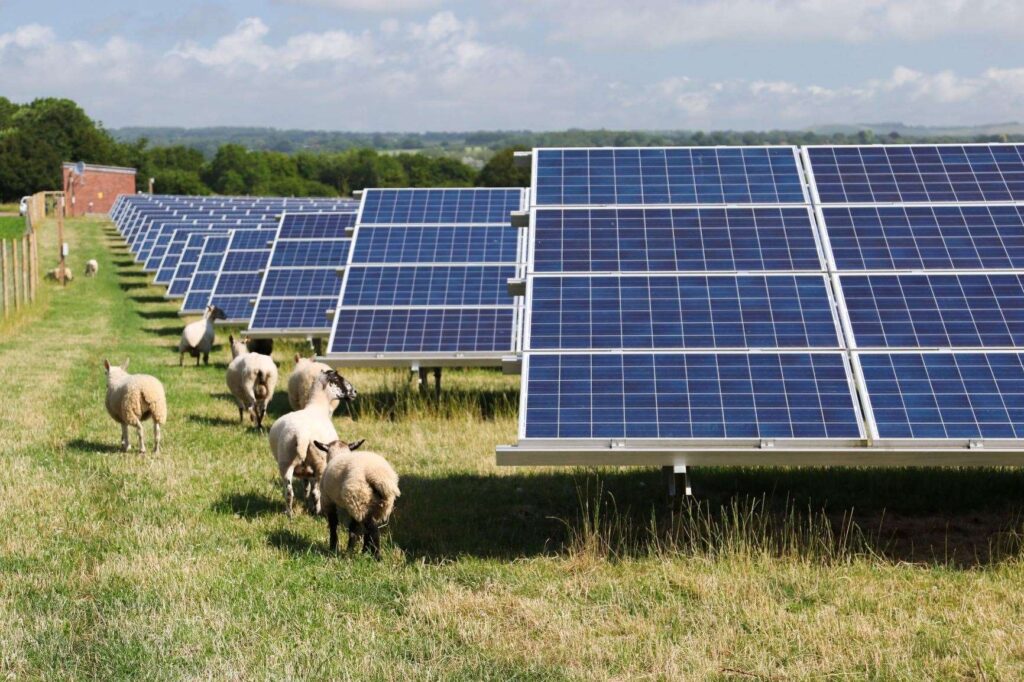Solar panels have several applications in agriculture, offering innovative solutions to improve sustainability, energy efficiency, and productivity on farms.
Irrigation
Solar panels can power water pumps for irrigation purposes. They provide a reliable and renewable source of energy to pump water from wells, rivers, or other water sources to irrigate crops, especially in remote areas where grid electricity may not be readily available.
Off-Grid Farming
Solar panels can power various electrical systems and equipment on off-grid farms, such as lights, electric fences, and communication systems. This is especially useful in remote or rural areas where access to the power grid is limited.
Greenhouses and Aquaculture
Solar panels can be integrated into greenhouse structures to provide electricity for lighting, ventilation, and climate control systems. Solar power can also be used in aquaculture for water aeration and filtration systems.
Livestock Farming
Solar panels can power water pumps and heaters for livestock watering systems and barns. They can also be used to charge electric fences, reducing the need for grid electricity in remote grazing areas.
Drying and Processing
Solar panels can power grain dryers and food processing equipment, reducing reliance on fossil fuels and cutting operating costs for farmers.
Solar-Powered Drones and Robots
Some advanced agricultural practices involve the use of drones and robots for monitoring crops, applying pesticides, and performing other tasks. These devices can be powered by solar energy.
Electric Tractors and Vehicles
While still in the early stages of development, there are ongoing efforts to create solar-powered electric tractors and farm vehicles, aiming for more sustainable and environmentally friendly farming practices.
Battery Storage
Solar panels can be combined with battery storage systems to store excess energy generated during sunny periods. This stored energy can be used during cloudy days or at night, providing a continuous and reliable power supply for various agricultural applications.
Using solar panels in agriculture can help reduce greenhouse gas emissions, lower energy costs, and enhance the overall environmental sustainability of farming operations. Additionally, it can increase the resilience of farms by providing an independent and decentralized energy source, which is especially important in regions prone to power outages or unreliable grid electricity.


